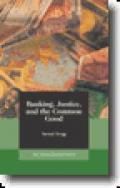


Robert George in the November 2007 issue of Touchstone on democracy, Catholic social teaching, and the confusion of means and ends…
Catholicism…preaches democratic ideals and promotes democratic institutions in the political sphere….
This teaching is put forth not as a mere prudential matter…but as a matter of justice in the dealings of human beings with one another. At is core is the idea that of all systems of political governance, democracy ports with the foundational anthropological and moral truth that every human being, as a creature fashioned in the very image and likeness of God, possesses a profound, inherent, and equal dignity.
The principle of basic human equality demands not only that the interests of all be taken into account, without discrimination, in distributing the benefits and burdens mon life, but also that petent adults have a voice in deciding between options for political choice…
Democracy, however, is fundamentally a means rather than an end in mon good of political society is fundamentally an instrumental good rather than an intrinsic good.
In this respect, mon good of political society is unlike mon life of the family and the koinonia of the church. The point of political society is provided by the ends or purposes it serves. The state, whether constituted democratically or otherwise, is fundamentally a means to those ends; it is in no sense an end in itself.
By contrast, the family and the church, though they may also be means to many valuable ends, are not mere means….
From there, George continues by repeating John Paul II’s caution against idolatry toward government and democracy– as well as his warning that unjust ends plished through democracy are ungodly. Despite mon reference to polling results– and although majority vote may legitimize a viewpoint in the secular realm– the right-ness of something cannot be determined by such a criterion.









